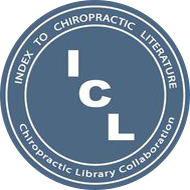| OBJECTIVES: To investigate the potential usefulness of a mental rotation paradigm in providing an objective measure of spinal manipulative therapy. To determine if cortical processing, as indicated by response time to a mental rotation reaction-time task, is altered by an upper cervical toggle recoil adjustment. DESIGN: Prospective, double-blind, randomized, controlled trial. SETTING: Chiropractic college clinical training facility. PARTICIPANTS: Thirty-six chiropractic student volunteers with clinical evidence of upper cervical joint dysfunction. INTERVENTION: Participants in the experimental group received a high-velocity, low-amplitude upper cervical adjustment. A non-intervention group was used to control for improvement in the mental rotation task as a result of practice effects. Outcome measures: Reaction time was measured for randomly varying angular orientations of an object appearing either as normal or mirror-reversed on a computer screen. RESULTS: The average decrease in mental rotation reaction time for the experimental group was 98 ms, a 14.9% improvement, whereas the average decrease in mental rotation reaction time for the control group was 58 ms, an 8. 0 improvement. The difference scores after the intervention time were significantly greater for the experimental group compared with the control group, as indicated by a one-tailed, 2-sample, equal variance Student t test, (P < 05). CONCLUSION: The results of this study have demonstrated a significant improvement in a complex reaction-time task after an upper cervical adjustment. These results provide evidence that upper cervical adjustment may affect cortical processing. Click on the above link for the PubMed record for this article; full text by subscription. |
